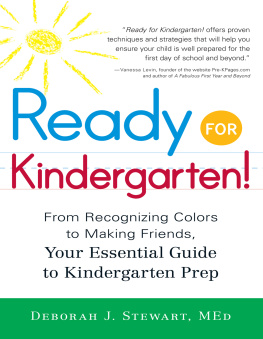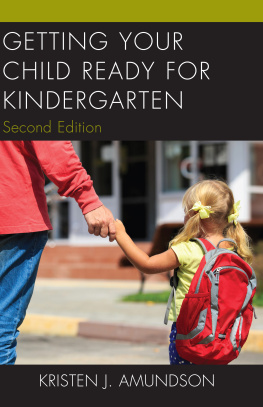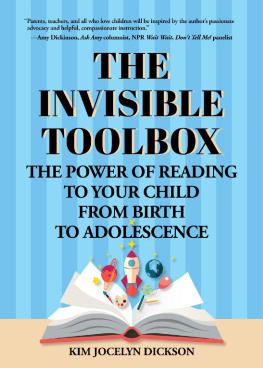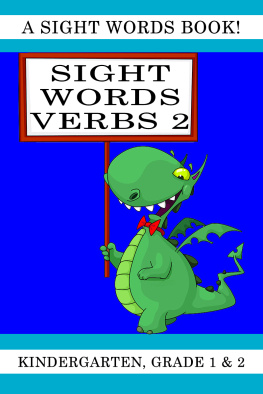
Ready for Kindergarten!
From Recognizing Colors to Making Friends,
Your Essential Guide to Kindergarten Prep
Deborah J. Stewart, MEd

Avon, Massachusetts
DEDICATION
This book is dedicated to my two grandsons, Kai and Xander, who will soon be heading off to enjoy their own kindergarten experience. It is my hope that their journey from early childhood to kindergarten and beyond is filled with exceptionally rewarding experiences every step of the way.
Introduction
The early childhood years are an amazing time of growth and development, and each stage of life is just as important as the next when it comes to helping young children prepare for success in kindergarten. The kinds of playful and nurturing experiences offered by parents and caregivers play an important role in helping young children reach their greatest potential during these critical years of development. Whether it is a brand new baby bouncing on daddys knee, or a toddler dumping blocks all over the floor, or a three-year-old getting hands messy with paint, you should celebrate each stage of a young childs life and consider each equally important in the process of preparing for kindergarten.
Throughout this book, you will find simple to read and apply tips on what you can do to build on the foundations that you have nurtured throughout early childhood. As you help your child prepare for success in school, those foundations are now ready for a little polishing. Reading along, you may recognize many of the skills as ones your child is already starting to exhibit. This book will help you recognize the significance of these skills in preparing for kindergarten so that you can continue to offer your child new opportunities to master them.
Each section of this book is broken down into small, easy to read and understand pieces of information that include the following:
- WHAT YOUR CHILD SHOULD KNOW: In this section, you will be given an overview of the developmental skills your child should have a good grasp of before heading off to kindergarten.
- HOW YOU CAN HELP: In this section, Ill give you tips and suggestions on how you can help your child master the developmental skills.
- REVIEW, REVISE, REVISIT: In this section, well discuss simple ways you can figure out how your child is doing. Keep in mind that learning comes through building on prior knowledge and experiences. As you review your childs progress, you will want to revise your plans and activities to fit your childs interests and abilities. Then revisit the activities to give your child additional opportunities to build new knowledge and to develop new skills.
Since many of the skills being highlighted throughout the book happen simultaneously as a child develops, it is best to read the book in its entirety first. Then go back and review the helpful tips as needed. Ready for Kindergarten! is based on the belief that parents play an important role in their childs education, and that there is always the need for a little guidance and support along the way. The book is rich with ideas and will be the kind of resource you can come back and review all throughout your childs prekindergarten year.
Ready for Kindergarten! is written with the assumption that you, as a parent or caregiver, recognize that each stage of growth and development is equally important and that you have worked diligently to invite your toddler to be a toddler and your three-year-old to be a three-year-old. While picking up another basket of dumped toys or wiping finger paint off tiny fingers, you instinctively know that these kinds of experiences are an important part of a childs development and are a part of the building blocks that lead your child to success in kindergarten.
However, within a year of your childs heading off to kindergarten, you can start to look back and worry whether you have done enough to help him be prepared for that next big step. Ready for Kindergarten! is written specifically for the parents and caregivers of children who are within that final year of preparation. Its a big step but its also the next stage on a wonderful journey that you and your child will take together.
PART I
Building Strength from Fingers to Toes
The kinds of physical growth that take place during the first five years of life are remarkable, but now that your child is getting ready for kindergarten, you will naturally start to take a closer look at the finer details of his physical abilities. Perhaps you notice that your child struggles with the strength to hold a writing tool firmly or lacks the coordination to cut with a pair of scissors. Perhaps you realize that you are always zipping up your childs coat or carrying his bags in from the car. And perhaps you remember that its been awhile since you went outside to toss a ball or fly a kite with him.
Fine-motor skills, large-motor skills, and self-help skills are all examples of physical readiness. They take time, patience, and opportunity to develop fully but all are essential components of kindergarten success. As you integrate a broad range of physical skills into everyday meaningful and playful experiences, your child will begin to develop the strength, balance, coordination, and confidence he needs to be physically ready for kindergarten.
CHAPTER 1
I Can Do It Myself
Part of preparing for success in kindergarten is mastering self-help skills. These can include anything from washing hands to organizing a backpack. As your child builds his own collection of self-help skills, he will be less dependent on others to get through the fundamentals of a classroom day. Lets take a look at some of the basic skills and processes your child should have a good grasp of in preparation for success in kindergarten.
SCRUB-A-DUB-DUB
Hand washing may seem like a simple process that any child should be able to do, but often we take for granted the most basic self-help skills and never really think them through. Hand washing is something your child will be doing daily, so, at the very least, the skill is worth a few minutes of your time to make sure your childs process is going well.
What Your Child Should Know
Hand washing comes with a complete set of skills including:
 Having a pretty good grasp of which sink handle is for cold water and which is for warm water
Having a pretty good grasp of which sink handle is for cold water and which is for warm water
 Knowing how to turn the water on and off
Knowing how to turn the water on and off
 Having some sense of how much soap is needed for one hand-washing session and how to operate a soap dispenser
Having some sense of how much soap is needed for one hand-washing session and how to operate a soap dispenser
 Knowing how to rub hands together to wash the germs away
Knowing how to rub hands together to wash the germs away
 Understanding how to rinse hands completely
Understanding how to rinse hands completely











 Having a pretty good grasp of which sink handle is for cold water and which is for warm water
Having a pretty good grasp of which sink handle is for cold water and which is for warm water